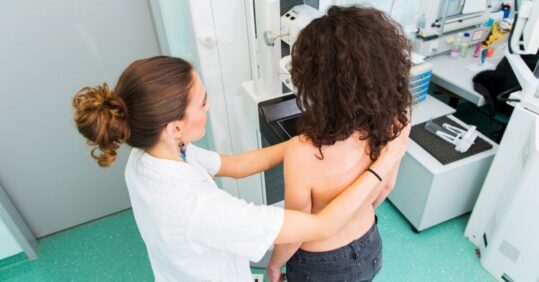NHS breast screening programme has low risk of overdiagnosis

The risk of overdiagnosis is low for breast cancer screening, according to a new study funded by the National Institute for Health and Care Research.
Related Article: ‘Concerning acceleration’ in drug-resistant gonorrhoea ahead of vaccine programme
In the UK, breast cancer cases have increased by 4% in the last decade, but deaths caused by breast cancer are declining. This is thought partly to be due to early diagnosis by the NHS Breast Screening Programme.
Despite the benefits of screening, there are some concerns within health care communities about the potential for overdiagnosis as a result of screening programmes. NHS screening is available to any female between 50 and 70 registered with a GP and involves taking a mammogram that Xrays breast tissue for any signs of cancer.
To analyse the extent of the overdiagnosis taking place in the NHS Breast Screening Programme, the researchers analysed data of 57,493 breast cancer cases diagnosed in 2010 or 2011 and compared this with 105,653 patients who did not have breast cancer.
Overdiagnosis is when a real cancer is found through screening, but it has no symptoms and is so slow growing that it poses a very low risk to the patient. This is distinct from false positive results when something abnormal on a scan turns out to be non-cancerous. Until now, estimates of overdiagnosis have varied widely, ranging from less than 5% to more than 30% as a result of screening.
Related Article: Action needed to tackle untreated hearing loss in care homes
Absolute rates of overdiagnosis were estimated by examining the effect of screening on breast cancer risk and combining the results with national incidence data. Overdiagnosis was defined as the cumulative excess of cancers diagnosed in women aged 50-77 who attended scans at three-year intervals between age 50 and 70, compared to women who did not get screened.
In women who attended all screens in the twenty-year period, overdiagnosis was low at just 3 per 1000. This reflects a 3.7% overdiagnosis of screen-detected breast cancer.
Professor Stephen Duffy from Queen Mary University of London said: ‘These results provide some reassurance that participation in the NHS Breast Screening Programme confers only a low risk of an overdiagnosed breast cancer. Along with the results of our previous study of the effect of screening on breast cancer mortality, this indicates that the benefit of screening in preventing deaths from breast cancer outweighs the small risk of overdiagnosis.’
Related Article: Government to introduce HPV self-sampling for ‘under-screened’ women
The rate of overdiagnosis found was considerably lower than has been suggested in the past. The researchers hope that the data will help women make an informed decision on whether to be screened by providing reliable estimates of overdiagnosis.

See how our symptom tool can help you make better sense of patient presentations
Click here to search a symptom




